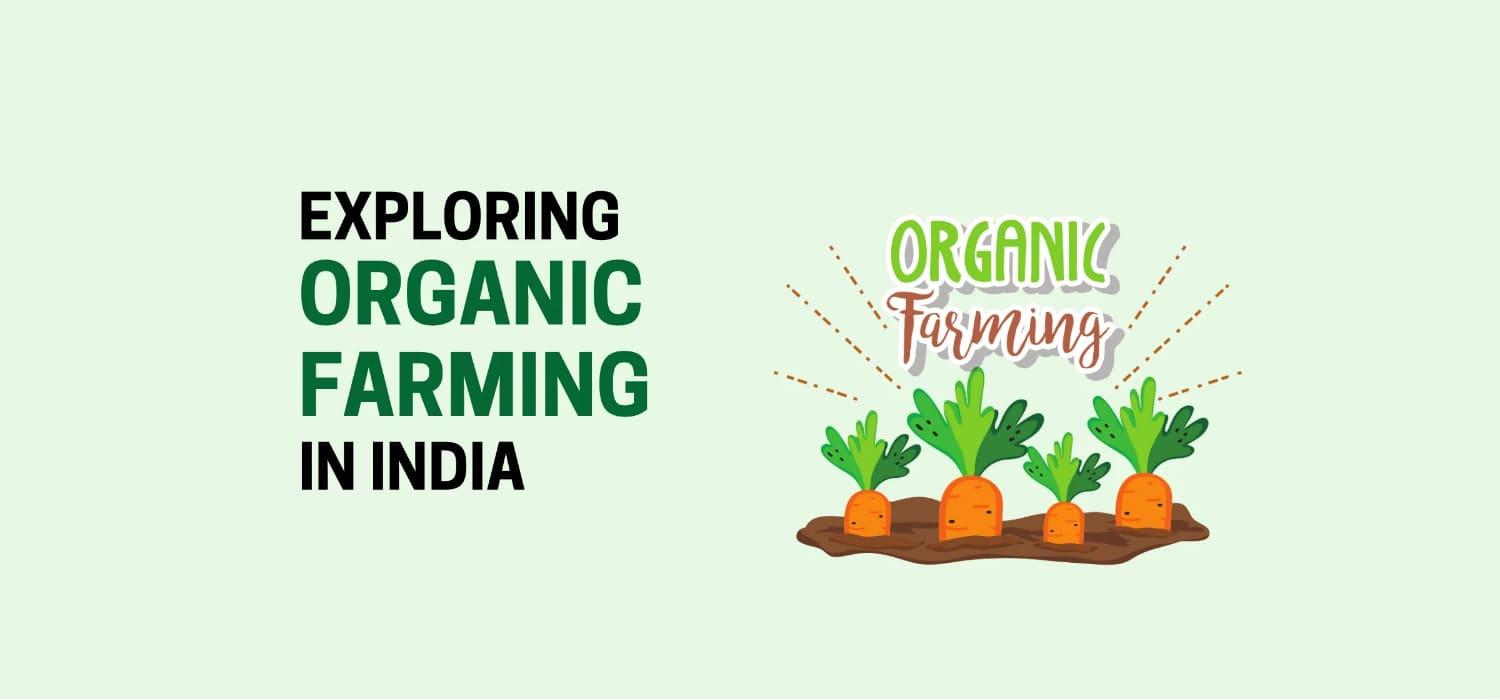Cart (0)
No products in the cart.

Introduction
In recent years, the agricultural landscape in India has witnessed a significant shift towards sustainable and eco-friendly practices. One such practice that has gained considerable momentum is organic farming. Organic farming, often referred to as "green farming," is a holistic approach to agriculture that prioritizes soil health, biodiversity, and the use of natural inputs over synthetic chemicals. In this comprehensive guide, we will delve into the world of organic farming in India, highlighting its numerous benefits and best practices.
Organic farming is an agricultural system that emphasizes the use of natural and organic inputs while avoiding the use of synthetic chemicals such as pesticides, herbicides, and synthetic fertilizers. It focuses on nurturing the health of the soil and ecosystems, thereby promoting sustainable and environmentally friendly agriculture.
India has a rich history of organic farming practices that date back centuries. Traditional farming methods, such as Vedic farming and natural farming, have laid the foundation for the organic farming movement in the country. The resurgence of interest in organic farming can be attributed to its numerous advantages.
Organic farming offers a plethora of benefits, both for the environment and for farmers. Let's explore some of the key advantages:
Organic farming is inherently sustainable as it reduces the environmental impact of agriculture. By avoiding chemical fertilizers and pesticides, organic farming helps preserve soil fertility, reduces water pollution, and minimizes harm to non-target organisms.
One of the fundamental principles of organic farming is soil health. Organic practices, such as crop rotation and the use of organic matter, enhance soil fertility and structure. This results in healthier crops and higher yields over the long term.
Organic farms are known for their rich biodiversity. The absence of chemical pesticides allows beneficial insects and microorganisms to thrive, contributing to natural pest control and a healthier ecosystem.
Organic produce is free from chemical residues, making it a healthier choice for consumers. It is rich in nutrients and antioxidants, contributing to better overall health.
While transitioning to organic farming may require initial investments, it can be economically viable in the long run. Organic produce often commands higher prices in the market, and reduced input costs can lead to improved profitability for farmers.
Organic farming encourages community involvement and knowledge sharing. Farmers often work together to implement organic practices and collectively benefit from sustainable agriculture.
Organic farming practices, such as agroforestry and crop diversity, contribute to climate resilience by reducing the risk of crop failure and enhancing adaptation to changing weather patterns.
Achieving success in organic farming requires adherence to best practices. Here are some essential guidelines for aspiring organic farmers:
Begin with a comprehensive soil test to understand your soil's nutrient profile. Use organic amendments like compost and vermicompost to improve soil fertility.
Practice crop rotation to prevent soil depletion and minimize the risk of pest and disease outbreaks. Rotate crops with different nutrient requirements to maintain soil health.
Implement natural pest control methods such as releasing beneficial insects, using neem oil, and practicing companion planting to reduce pest populations without chemical interventions.
Optimize water usage by employing techniques like drip irrigation and rainwater harvesting. Conserving water is crucial for sustainable agriculture.
Choose non-genetically modified (GMO) seeds to maintain the integrity of organic crops. Save seeds from your harvest for future planting.
Consider obtaining organic certification to build trust with consumers. Certification ensures that your products meet organic standards.
Stay updated with the latest organic farming techniques through workshops, seminars, and interactions with experienced organic farmers.
Organic farming in India is not just a trend; it's a sustainable agricultural revolution. By adopting organic practices, farmers can enjoy improved soil health, increased biodiversity, and economic benefits, while consumers can relish healthier and chemical-free produce. As India strives for a more sustainable agricultural future, organic farming is poised to play a pivotal role in achieving these goals.
Yes, organic farming often requires more labor, especially in the initial phases of transitioning. However, the long-term benefits, including improved soil health and reduced input costs, can outweigh the labor demands.
Organic products are often priced slightly higher than conventionally grown ones due to the additional labor and organic certification costs. However, many consumers are willing to pay a premium for the health and environmental benefits they offer.
Yes, organic farming can be practiced on a small scale. In fact, many small-scale farmers find success in organic farming as it allows them to maximize the productivity of their land while minimizing input costs.